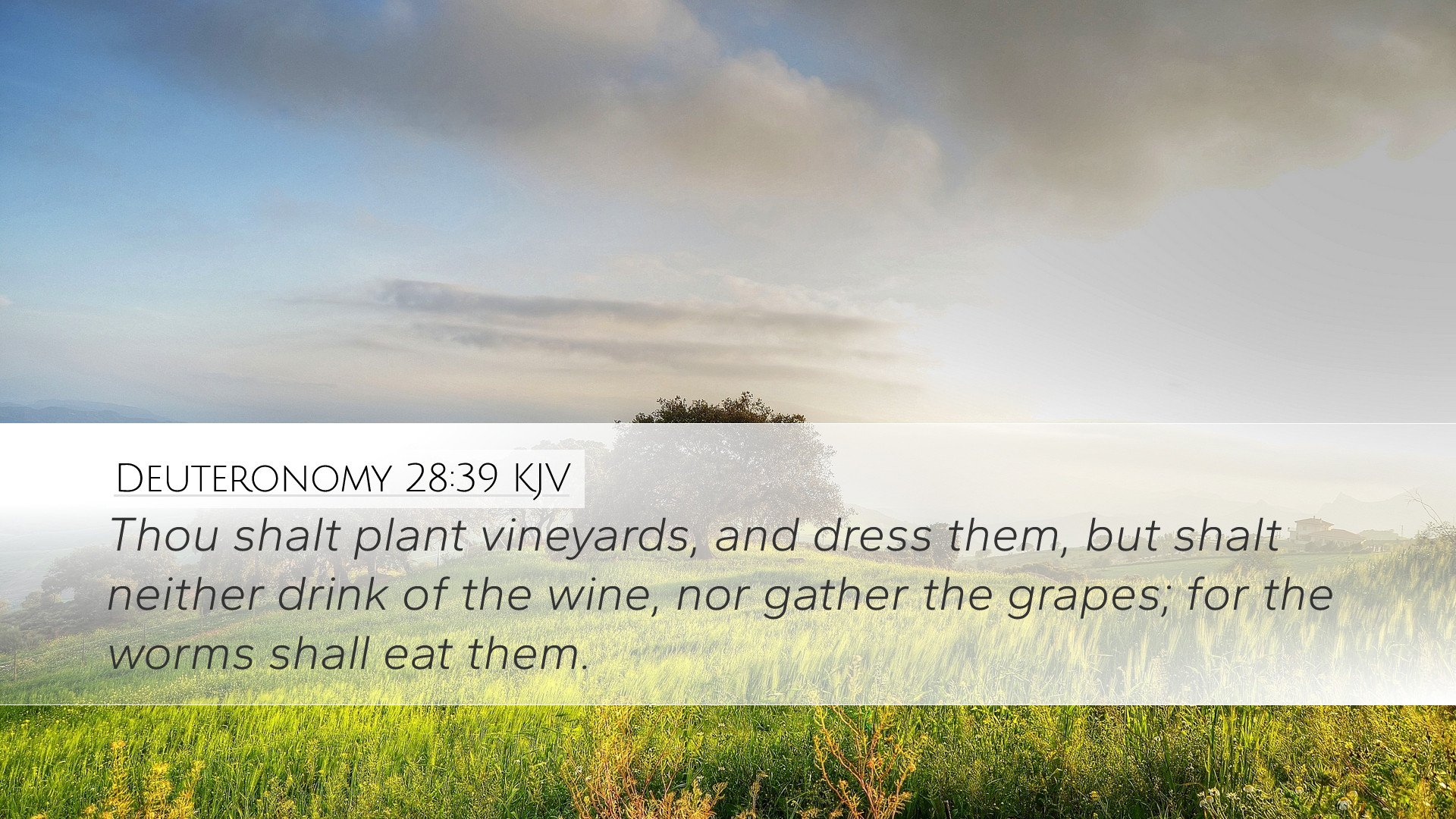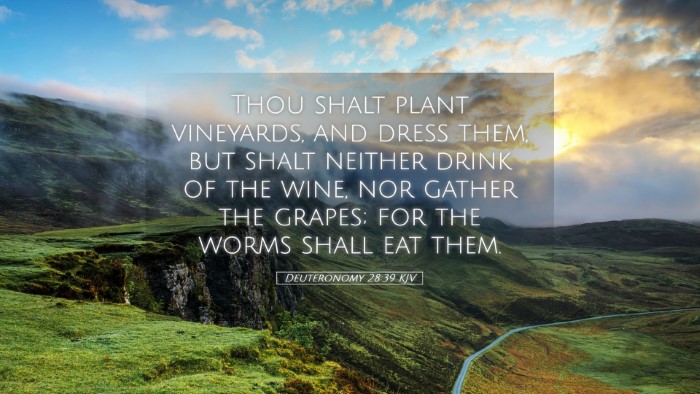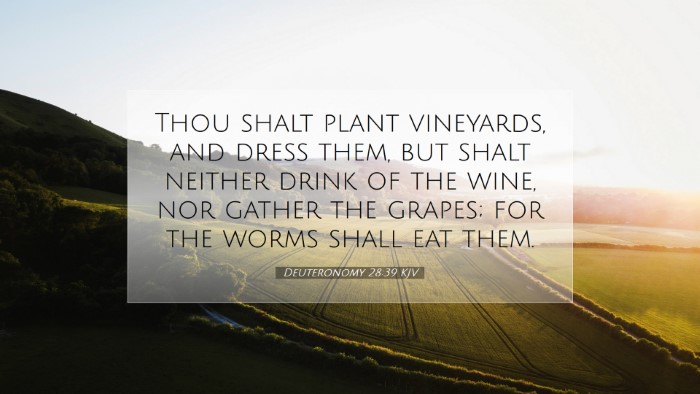Commentary on Deuteronomy 28:39
Verse Reference: Deuteronomy 28:39 - "And thou shalt plant vineyards, and dress them, but shalt neither drink of the wine, nor gather the grapes; for the worms shall eat them."
Introduction
The verse found in Deuteronomy 28:39 is part of a larger discourse that outlines the blessings for obedience and the curses for disobedience to God’s commandments. This particular verse highlights the futility of labor when one is under divine judgment, underscoring the deep connection between human actions and God’s providence.
Commentary Insights
Matthew Henry's Commentary
Matthew Henry emphasizes the profound sense of loss that accompanies this verse. The act of planting vineyards, which signifies promise and hope for future enjoyment, is met with the curse of unfulfilled labor. This is a poignant reminder that even the most industrious efforts can come to naught when disconnected from God’s favor. Henry notes that the blessing of God is essential for the fruits of one’s labor to be enjoyed, and in this case, the worms consuming the grapes illustrate the disintegration of anticipated rewards.
Albert Barnes' Notes
Albert Barnes expounds on the imagery presented in this verse as a reflection of despair and ruin. He articulates that the act of dressing vineyards, a symbol of cultivation and nurturing, being met with destruction represents the broader theme of spiritual barrenness under divine displeasure. Barnes further points out that this curse serves as a warning against the Israelites' inclination to stray from God’s statutes, representing the broader theological concept that divine judgment results in the loss of the fruits of one’s labor.
Adam Clarke's Commentary
Adam Clarke adds a rich layer of historical context to the understanding of this curse. He notes that in agrarian societies, reliance on the yield of the earth was paramount. Clarke explains that for the Israelites, planting vineyards was not merely about economics; it was tied to cultural identity and fellowship. The loss of vineyards—forced by worms consuming the grapes—represents a complete loss of sustenance and communal joy, highlighting the dire consequences of defiance against God’s law.
Thematic Analysis
This verse encapsulates several critical themes relevant to pastoral, theological, and scholarly discussions:
- The Sovereignty of God: The text illustrates God’s sovereign control over creation and human endeavors. The ability of worms to consume the vineyard symbolizes God's judgment and the ultimate futility of efforts not aligned with His will.
- The Importance of Obedience: Deuteronomy 28:39 serves as a stark reminder of the consequences of disobedience. It warns contemporary readers about the spiritual ramifications of forsaking divine commandments.
- The Destruction of Hope: The anticipation of enjoying the fruits of one's labor being crushed by impending doom speaks to the destruction of hope that accompanies spiritual desolation.
- Spiritual Application: For modern believers, there is a strong call to examine personal and communal faithfulness to God. The commentary suggests that reliance on one’s own strength without God may lead to desolation.
Practical Implications for Ministry
Pastors and spiritual leaders may draw on this verse when teaching about the consequences of disobedience and the importance of maintaining a close relationship with God. Key practical implications include:
- Emphasizing Dependence on God: Highlight the need for a community that seeks God’s blessing over their endeavors to cultivate a fruitful ministry.
- Encouraging Obedience: Reinforce the importance of living righteously and adhering to God’s commandments as a safeguard against spiritual barrenness.
- Fostering Hope Amidst Trials: Utilize the imagery to encourage congregants during difficult times that God’s favor can change their situation, yet obedience and faith are critical.
Conclusion
Deuteronomy 28:39 serves as a solemn reminder of the consequences tied to human actions in relation to divine law. The insights from Henry, Barnes, and Clarke converge on the understanding that the blessings of God are inextricably linked to obedience, while disobedience leads to a barren and unfruitful existence. This verse calls readers—whether pastors, students, or Bible scholars—to reflect deeply on the implications of their spiritual choices and the broader theological truths regarding God’s covenant with His people.


